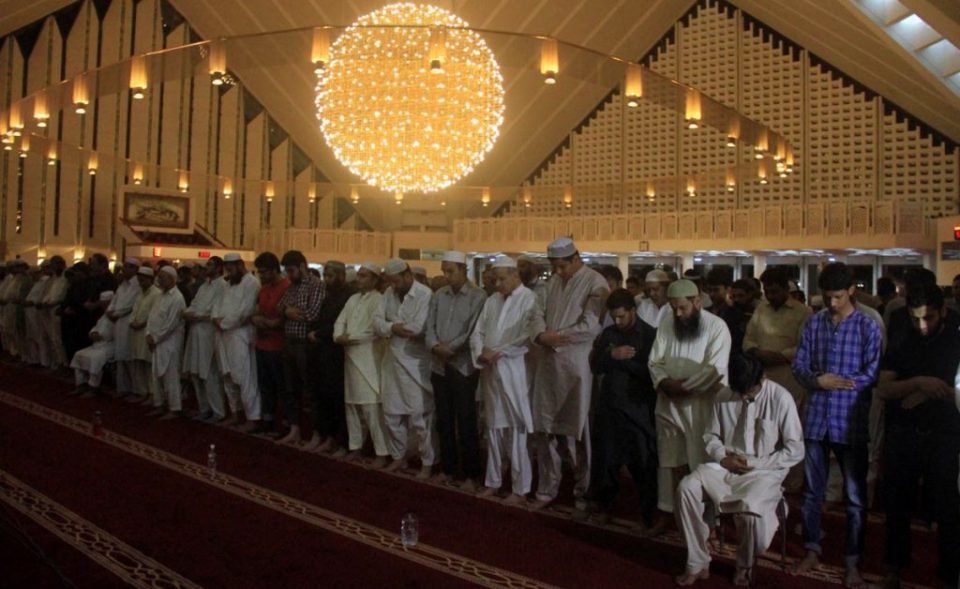The Pakistan Medical Association (PMA) on Thursday urged the federal government to review its decision regarding congregational prayers at mosques during Ramazan, saying that the government should not “push the country into a test it is not prepared for”.
Addressing a news conference in Lahore, PMA President Ashraf Nizami and other senior doctors also requested the chief justice of Pakistan and other state institutions to review the recent decision taken in consultation with Ulema to allow congregational prayers.
The PMA president stressed on the importance of taking strict measures to curb the spread of the coronavirus. “The rule they have made that there should be a six feet distance between worshippers; practically it’s not possible,” Nizami said, appealing to the government to review its decision and “establish writ of the state”.
Giving an example of the closure of mosques and holy sites across the world, Nizami said: “Our qibla is Kaaba and Masjid-e-Nabwi is most important for us. If there are rules being implemented there […] and our religious scholars have also said that taraweeh and prayers should not be offered in mosques.
“Your (government’s) imprudent steps will not be good for us,” he said, calling upon the country’s leadership to exercise the “writ of the government”.
“The decisions made by governments of Saudi Arabia, Dubai, Turkey, Malaysia and Indonesia as Muslim countries should also be adopted by Pakistan.
“All of us want to pray and worship in Ramzan but we should not do anything that would, God forbid, lead to an increase in our troubles,” he said.
Speaking about the constant surge in the number of cases, the PMA chief said though the official number of cases was around 10,000, but the actual number was much higher.
“I don’t want to scare you, but I would like to inform you that the [cases] are not in thousands […] the number is much higher. It would sound weird to hear that the number is [more than] 100,000 but it is definitely not less.”
“The number is not based on assumptions but on mathematics,” he said, adding that research had shown around 80 per cent of patients did not show symptoms and if these people are tested, the number of cases will be much higher.
Speaking about the lax in restrictions recently, Nizami said this has led to an increase in the coronavirus cases. The government should act on a “100% lockdown policy” which should also include restrictions on religious gatherings.
“We have always said that ‘prevention is better than cure’. And in this case, it is a 1,000 times better to stay cautious.”
“Remember: there is no cure for this virus. Even if Mr Trump, or anyone else, says they have found a cure, it is all chatter. There is no treatment for COVID-19,” he warned.
“We are not economic experts, but as medical professionals, we believe that if there is life, there is opportunity. To say that we’ll either die from the virus or from poverty is not right. This is a very negative trend,” he said, alluding to the argument often made by Prime Minister Imran Khan and his ministers.
Pakistan Medical Association General Secretary Dr Qaiser Sajjad had said that the government and Ulema had taken the wrong decision in allowing congregational prayers. Though mosques not following the government’s requirements would be closed, he warned that by that time, it may be too late.

